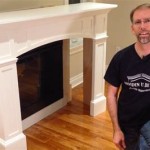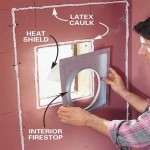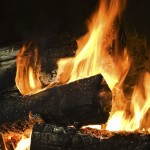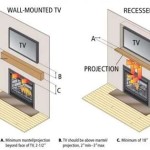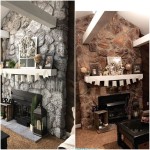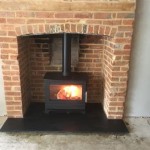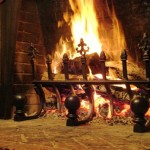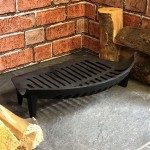Essential Aspects of Fixing a Fireplace Damper
Fireplace dampers play a crucial role in maintaining the safety and efficiency of a fireplace. A malfunctioning damper can lead to problems such as drafts, smoke backdraft, and reduced heating efficiency. Therefore, it is essential to know how to identify and fix a fireplace damper promptly.
Identifying a Malfunctioning Damper
There are several signs that may indicate a malfunctioning damper:
- Drafts: A damper that is not closing properly can allow cold air to enter the room, even when the fireplace is not in use.
- Smoke backdraft: A poorly sealed damper can allow smoke to escape into the room when the fireplace is in use.
- Reduced heating efficiency: A broken or damaged damper can prevent warm air from circulating effectively, reducing the fireplace's heating efficiency.
- Visible damage: Check the damper for any visible signs of damage, such as holes, cracks, or broken parts.
Fixing a Fireplace Damper
Fixing a fireplace damper can be a simple or complex task, depending on the nature of the problem. Here are some steps to help you get started:
- Identify the problem: Determine what is preventing the damper from functioning properly. Check if the damper is stuck, damaged, or misaligned.
- Clean the damper: Remove any soot, debris, or rust buildup that may be interfering with the damper's movement.
- Adjust the damper arm: The damper arm is the lever that controls the damper's opening and closing. Adjust the arm so that the damper opens and closes smoothly.
- Replace the damper: If the damper is severely damaged or cannot be repaired, it may need to be replaced. This is a more involved task that may require professional assistance.
- Call a professional: If you are not comfortable fixing the damper yourself or if the problem persists, do not hesitate to contact a qualified fireplace professional for assistance.
Preventing Damper Problems
Regular maintenance can help prevent fireplace damper problems from occurring in the first place. Here are some tips:
- Inspect the damper regularly: Check the damper for any signs of damage or wear during routine fireplace maintenance.
- Clean the damper: Remove any soot or debris from the damper and damper arm periodically to ensure smooth operation.
- Lubricate the damper: Apply a high-temperature lubricant to the damper arm to prevent corrosion and ensure smooth movement.
- Use the fireplace properly: Always build fires according to the manufacturer's instructions and never burn oversized logs that can damage the damper.
By following these steps, you can keep your fireplace damper in good working order, ensuring the safety and efficiency of your fireplace for years to come.

Fireplace Damper Repair Full Service Chimney Kansas City

How To Fix A Stuck Fireplace Damper The Blog At Fireplacemall

Don T Let A Leaky Chimney Damper Dampen Your Spring American Masonry

Fireplace Damper Repair Full Service Chimney Kansas City

Fireplace Dampers Throat Vs Top Mount Swede Chimney Sweep Dryer Vent Cleaning

How To Use A Fireplace Damper The Right Way

Fireplace Damper Repair Full Service Chimney Kansas City

What Is A Chimney Damper Full Service

Stuck Fireplace Damper Doityourself Com Community Forums
Solve Your Chimney Downdraft Problems Cricket
Related Posts

